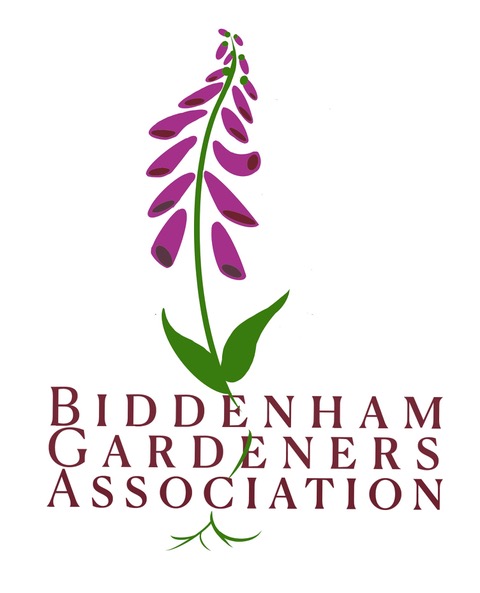 On Tuesday evening 20th October 35 Members and Visitors were joined, on Zoom, by Rob Brett the Curator of RHS Garden Hyde Hall. Several years ago BGA members visited Hyde Hall and it was interesting to note that, when we arrived, most people made a beeline for the dry garden. Rob, who started off in farming, has had a career in horticulture which has taken him from Kew Gardens to the Cambridge Botanic Garden, Sainsbury Laboratory Plant Science Research Facility at Cambridge University and the Eden Project in Cornwall.
On Tuesday evening 20th October 35 Members and Visitors were joined, on Zoom, by Rob Brett the Curator of RHS Garden Hyde Hall. Several years ago BGA members visited Hyde Hall and it was interesting to note that, when we arrived, most people made a beeline for the dry garden. Rob, who started off in farming, has had a career in horticulture which has taken him from Kew Gardens to the Cambridge Botanic Garden, Sainsbury Laboratory Plant Science Research Facility at Cambridge University and the Eden Project in Cornwall.
Rob’s talk was in three parts; focussing firstly on the Royal Horticultural Society (RHS), he then gave illustrations as to why plants are so important in our lives and ended his presentation with information about the gardens at Hyde Hall.
Many of the BGA members are also members of the RHS and in the Society’s Garden Magazine this month Rob describes some of the planting plans at Hyde Hall which capture the colours of Autumn. Even though Hyde Hall Gardens were closed from March until June in 2020 there have been a total of 160,908 visitors since the gardens reopened. This year the pandemic has promoted a new interest in horticulture and all the RHS gardens have seen a record number of visitors. The RHS is involved in many projects including Community Outreach Projects like the Britain in Bloom Campaign, the Greening of Great Britain Campaign and the Horticulture Matters Programme where the RHS has taken on responsibility for training students and apprentices. Rob updated us on RHS Bridgewater, a new 154 acre garden at Worsley, five miles west of Manchester. The site has been designed by Tom Stuart Smith and will be officially opened in May 2021. Of particular interest will be the 11 acre walled garden.
Rob then went on to the main theme of his presentation “Why plants are important to us and why we need them” Well – we need them for food, fuel, shelter, building and construction, medicines, herbal remedies, cosmetics, pharmaceuticals and technology. Rob went on to discuss plant research, natural and applied variation, climate change plant protection, plant culture – art work, plant education and our enduring need for connectivity with plants. Each aspect was well illustrated by lovely photographs and examples showing a real in depth knowledge of plants and their characteristics gleaned over many years by studying them and working with them in different settings in this country and abroad. Rob transported us to the mangrove swamps around Singapore, to the deserts inhabited by cacti, to the bushfires of Australia. Rob illustrated the power of plants by the example of the Titan Arum, endemic to the steep hillsides of rainforests in Sumatra, but grown also in the glasshouses at Cambridge Botanic Garden. It’s the largest flowering structure on earth producing a flower only once every seven to nine years. The flower grows up to three metres tall and survives for one night only – such is its plant power that it attracts enormous crowds to see it when it is in bloom. Rob summed up our need for plants as a way of “filling our souls”. We need plants to utilise our landscape and to surround and immerse ourselves – this year more than ever one would think.
The third part of Rob’s talk featured Hyde Hall gardens in Essex. In 1993 Mr and Mrs Robinson donated 1000 acres of farmland to the RHS – the couple had already started to make a garden on part of the site. The RHS kept 365 acres to continue to develop as a garden and sold the rest for farming. The garden has evolved over the years with a rose garden, dry garden, winter garden, courtyard garden, an education and learning centre and a restaurant. Around 4,500 children take part in educational activities each year. Fruit and vegetables grown in the garden are used in the restaurant and there is close collaboration between head gardener and chef. Since 1996 shelter belts with 60,000 trees have been planted over 60 acres which surround the edges of the garden and now attract 93 different species of birds as well as butterflies and native orchids. The habitat has completely changed since the trees have become established – a great achievement in an arable farming setting.
It was such a joy to listen to a speaker who was so knowledgable, so enthusiastic and so passionate about plants and their impact and influence on us all. Thank you to Rob for an excellent presentation. Hopefully the BGA will be able to arrange another visit to RHS Hyde Hall and, who knows, one day we may be able to visit RHS Bridgewater as well.
On Tuesday 17th November we will be joined, on Zoom, by Lucy Hartley who will give a presentation entitled “Designing a Border from Scratch”. Details can be found on our website. As usual this meeting will be open to all members and visitors.
Linda Truscott
New members and visitors are always welcome.
For more information contact: Linda Truscott on 01234 270747



